South Africa’s leading contemporary artist offers a reflection on the limits of transitional justice in his country, which is also relevant for Taiwan and the Tai Ji Men case.
by Massimo Introvigne*
*A paper presented at the webinar “Tai Ji Men: The Road to Freedom,” co-organized by CESNUR and Human Rights Without Frontiers on July 18, 2022, United Nations Nelson Mandela Day.
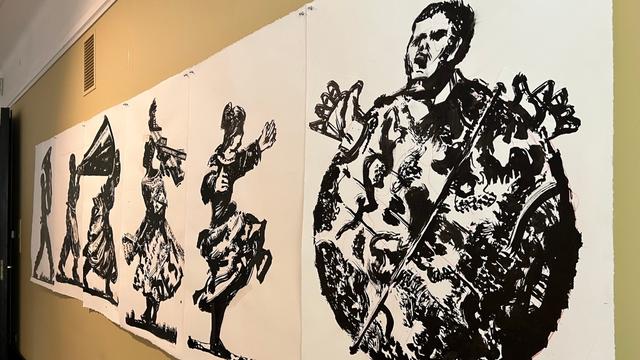
Transitional justice is defined as the actions implemented by democratic regimes for rectifying the human rights abuses perpetrated in their countries by previous authoritarian governments, uncovering the historical truth, indemnifying the victims, and punishing the perpetrators.
It is generally acknowledged that a model institution for transitional justice was created by Nelson Mandela. It was the Truth and Reconciliation Commission, which started working in 1996 in South Africa after the end of the apartheid. Many scholars believe the Commission was a success. However, it also received some criticism.
One way to understand this criticism is to look at the work of South Africa’s leading contemporary artist, William Kentridge, who used as title for several of his works and exhibitions “That Which We Do Not Remember.” Memory and transitional justice in South Africa and internationally are indeed a main theme of his work. He has used two literary references as lenses for looking at the Truth and Reconciliation Commission. The first is “Ubu Roi,” a satirical play by French symbolist writer Alfred Jarry (1873–1906). Ubu is a corrupt officer who kills the King of Poland, replaces him, and starts stealing from the population through heavy taxes. When he is about to lose the throne, he escapes to France.
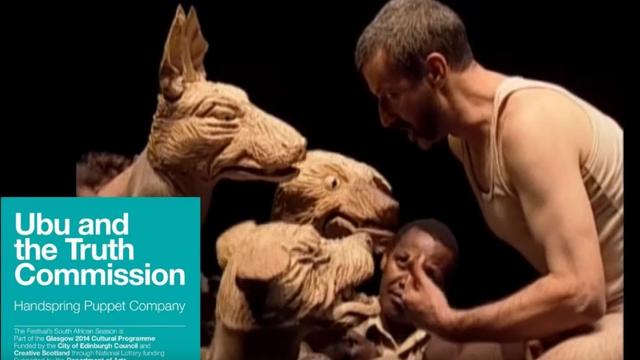
Kentridge directed in 1997 the play “Ubu and the Truth Commission,” written by Jane Taylor. He also produced drawings and multimedia works that appeared in the play. In the South African play, Ubu is a police officer who served as a petty apartheid bureaucrat. When the Truth and Reconciliation Commission starts its work, which includes the possibility of granting amnesty to those who testify and tell the truth, Ubu is undecided what to do, but in the end believes he has found a way to turn the Commission to his own advantage.
The second set of literary references for Kentridge includes “The Nose,” a short 1836 story by Russian 19th-century novelist Nikolai Gogol (1809–1852), and his 1930 adaptation as an opera by Soviet composer Dmitri Shostakovich (1906–1975). It is the famous story of a nose that leaves his owner, a Russian bureaucrat, and for a while takes a life of its own, achieving an even higher bureaucratic ranking than the man from whom it has detached itself.
Kentridge directed Shostakovich’s opera and also used “The Nose” in his installation “I’m Not Me, The Horse Is Not Mine.” The title comes from a Russian saying referred to those who deny all responsibility for their wrongdoings. Kentridge uses “The Nose” as a setting to represent the crimes of Stalin (1878–1953) and in particular his cruel trial and execution of Marxist theoretician Nikolai Bukharin (1888–1938). The bureaucrats who have been Bukharin’s friends and associates, rather than defending him, accompany his fall with laughter.
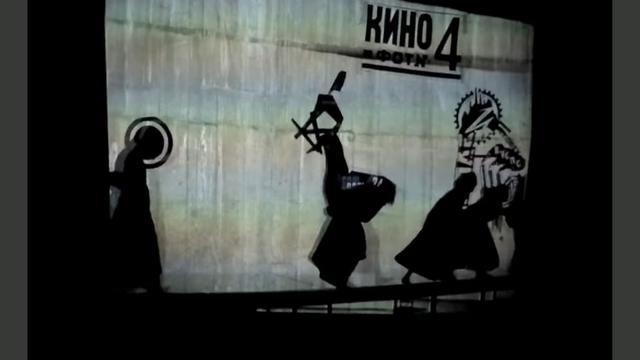
These references help Kentridge reflecting in depth on transitional justice. His point is that, just as it happened in post-Communist Eastern Europe, in South Africa, while some main leaders and theoreticians of the past regime were punished, bureaucrats who were not less guilty escaped. Through Ubu and the nose’s owner, Kentridge also offers an indictment of the greediness and obsession with rank and power of the bureaucrats.
Interestingly, producing “Ubu and the Truth Commission” was expensive and several co-producers joined forces, among which were The Taipei Arts Festival and Taipei Culture Foundation. Obviously, the theme of transitional justice is relevant for Taiwan. As I have mentioned in previous webinars, in 2018, a Transitional Justice Commission was established in Taiwan to deal with abuses perpetrated during the period between 1945 and 1992—but not after 1992. The Tai Ji Men case started in 1996, and demonstrates that limiting transitional justice in Taiwan to cases that happened until 1992 is wrong, since post-authoritarian violations of human rights continued after that date.
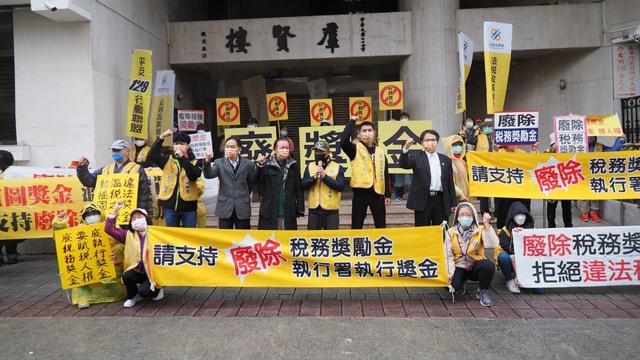
Kentridge’s message about transitional justice provokes us to reflect on how well-intentioned truth commissions may have failures and limits, which is true for Taiwan as it was for South Africa. Just as it happened in post-Communist Eastern Europe and post-apartheid South Africa, guilty bureaucrats, including those who persecuted Tai Ji Men, escaped punishments. However, there is more to challenge us in Kentridge’s work.
Kentridge’s narrative is about the limits of legal solutions and of rational discourse itself. As one of his works proclaims, we may utter beautiful sentences but in the end “The Full Stop Swallows the Sentence,” and confronts us with the limit of legal or rational statements.
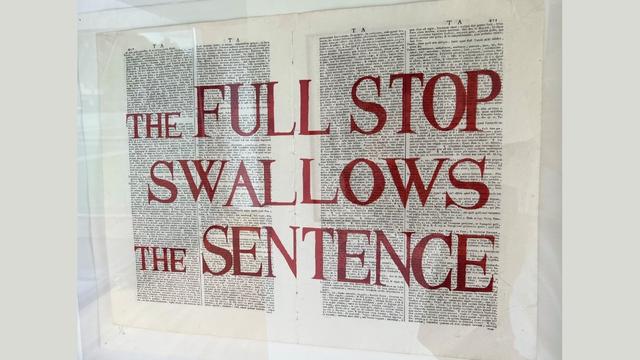
The artist’s suggestion is that, while fighting for better legal mechanisms asserting transitional justice certainly makes sense, in the end results would be achieved only by dealing with memories, feelings, and conscience. This is also a valid reflection on transitional justice in Taiwan and Tai Ji Men. While we fight to improve the legal and political mechanisms, Tai Ji Men’s call to conscience and a change of the hearts indicates the decisive path towards a solution.
Source: Bitter Winter

